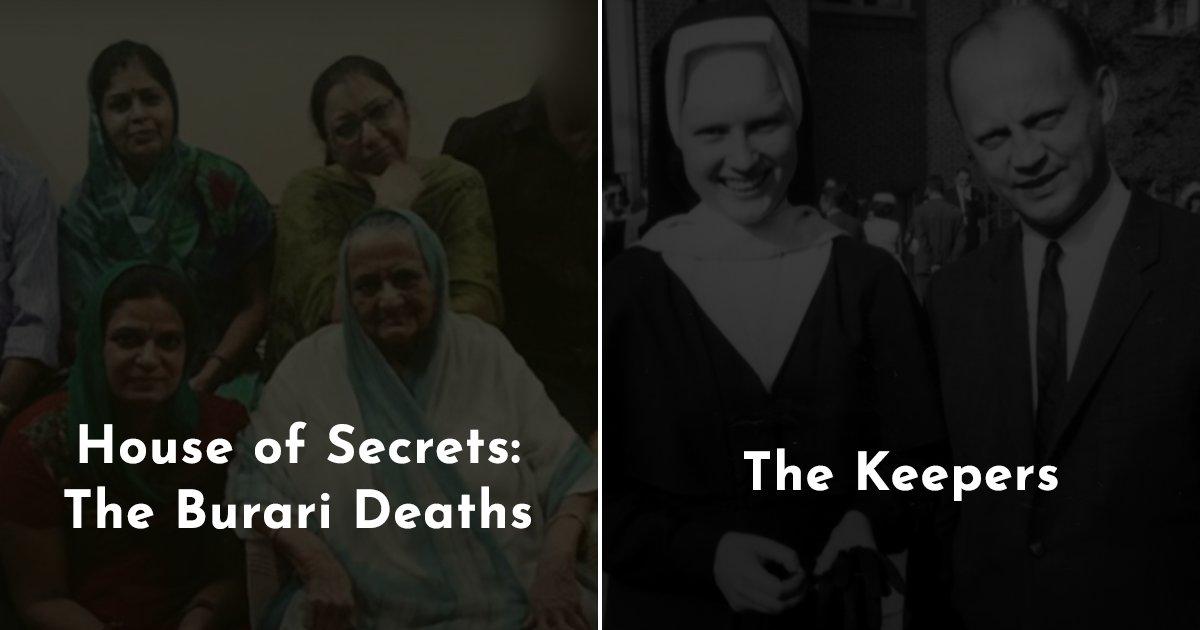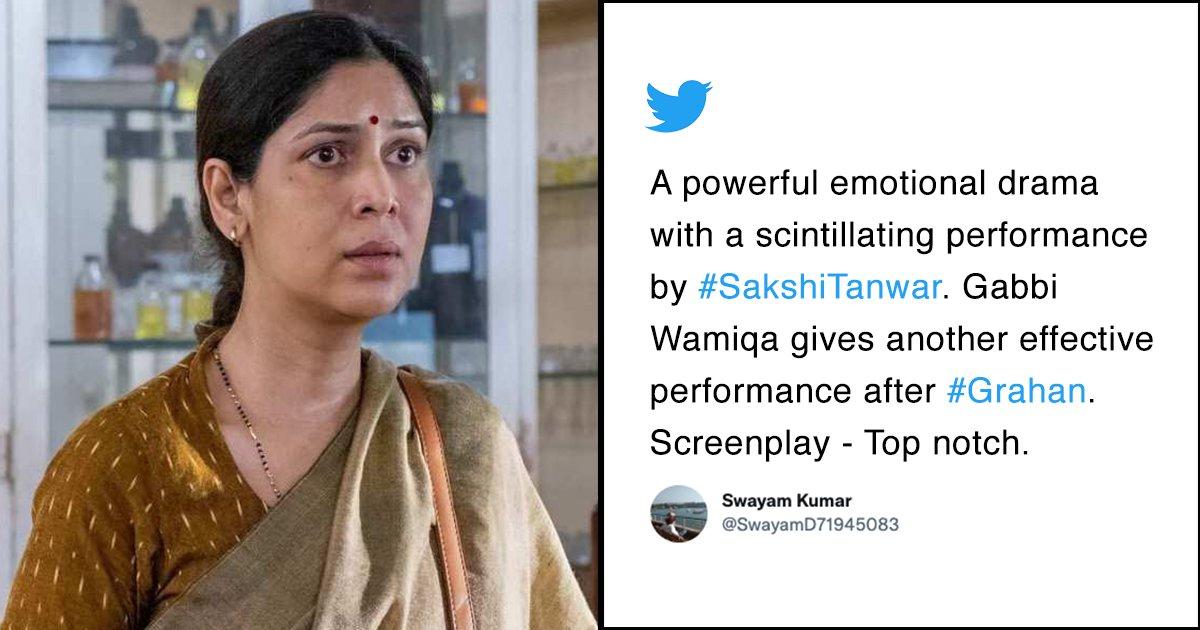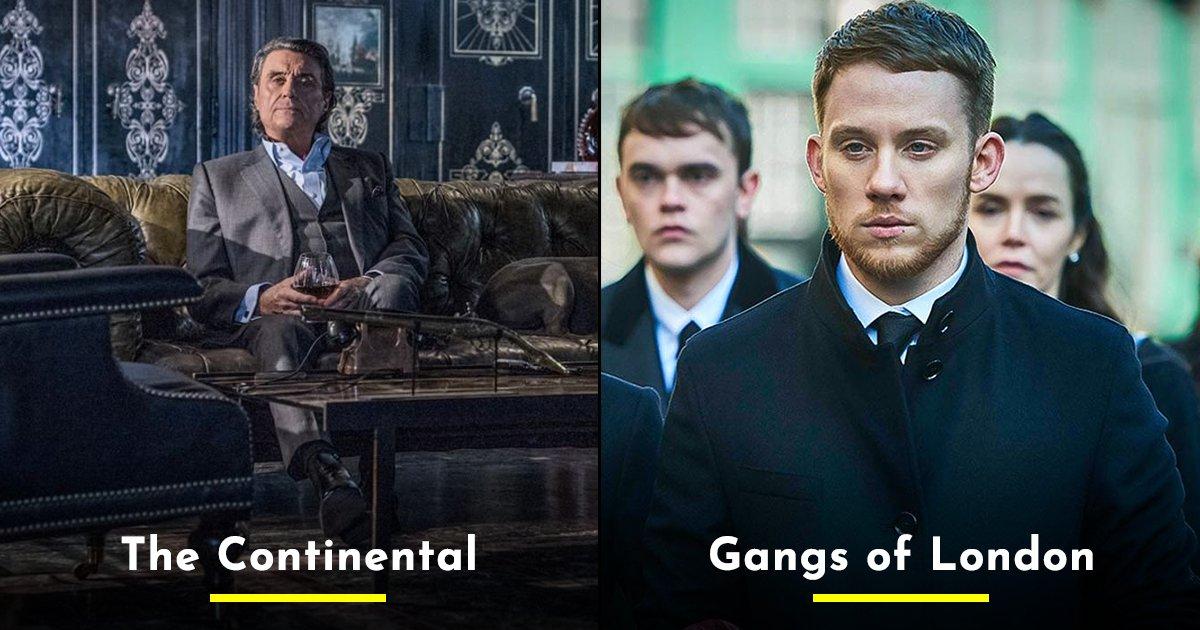Listen, I love rom-coms. It is one genre that I, like many others, probably watch the most. These movies/shows are light and fun and always, always have a good ending. What’s not to like?
I enjoy sitting there and knowing that the couple will come back together after that insane breakup which saw one of them shift to another country altogether. They will work it out.
So this is amazing, but you know what really tickles the overactive cells of my brain? True crime binge-watch. It’s specific. Not a true-crime movie (which can also be great), but a full-fledged show that is basically a class in human behaviour.
Nothing gets me as excited as when I see a new true crime show out to binge watch! pic.twitter.com/AkANv8jtOj
— Netflix Diaries (@netflxdiaries) October 16, 2020
I want to feel knowledgeable. I want to know why the human mind works the way it does because that’s probably the only way I can stop my own brain from working too much. It needs little projects.
Truly, I do not come from a sadistic space when I say I love watching true crime. It’s very academic. I am this close to making notes.
every few years i buy myself a month of netflix to binge watch the new true crime documentaries they released since the last time i got netflix and then i cancel my subscription again.
— janina (@nonohausen) February 20, 2022
People on Valentine’s Day: Celebrating with special dinners, desserts, romcoms, sweet stuff.
— Christie Stratos, suspense author (@ChristieStratos) February 15, 2022
Me: TIME FOR A TRUE CRIME BINGE WATCH
And I generally prefer if one of my friends is watching the show at the same time because then we can exchange notes and get a university feel, except this is the university which we actually want to attend and it’s on Netflix for 149 rupees.
✨Women in her 20s and her true crime obsession✨
— 染儿 ranran • 4A⛸ (@waewuqian) February 22, 2022
At this point, I have seen almost all major true-crime shows and you may think that that’s a little strange, but experts would disagree with you on that. Here is what Caitlin Rother, a true-crime Canadian novelist said in an interview:
We want some insight into the psychology of a killer, partly so we can learn how to protect our families and ourselves…but also because we are simply fascinated by aberrant behavior and the many paths that twisted perceptions can take.
Just like my mild ID and true crime obsession doesn’t make me a murderer, it satisfies a dark curiosity I possess. Curiosity is human nature. We all possess our own morbid fascinations. It’s okay. It doesn’t make you a bad person. 14/
— Melody | Canimal (@Canimallow) February 23, 2022
In fact, psychologists suggest this fascination could be “healthy”. Dr. Michael Mantell, ex-chief psychologist of the San Diego Police Department talks about the issue and says:
I think our interest in crime serves a number of different healthy psychological purposes.
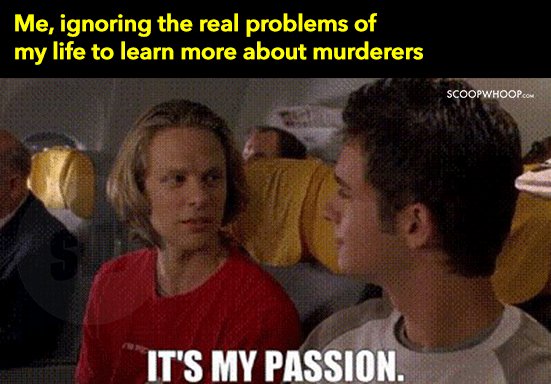
He did say though that don’t overdo it. As in don’t go overboard. That happens when you ONLY think about crime and nothing else. That isn’t the case here, so it’s all good.
horror movies and true crime shows alone at night is where it’s at! https://t.co/R5llZQigZM
— CHRISTINA (@spanishcvndy) February 21, 2022
Watching true-crime shows has made me aware of so many things I didn’t know before, I have figured the inner workings of entire industries through it.
The American banking system, for instance. I won’t say I have become an expert but if you leave me out there to secure a loan, I’d know who to look for.
These shows have also made me more careful. You’re not getting me to say my OTP, no matter what. I have seen people do it on these shows and the next thing they know, every penny in their bank account is gone.
Learned some good life lessons from my true crime obsession. Like lock your car doors as soon as you get in, antifreeze can’t be tasted in a mixed drink, bodies don’t float if the lungs are punctured and don’t walk alone at night. All super important. #truecrime #serialkillers
— Stephanie (@AMinorLife) January 2, 2020
And the OTP thing is a very basic example, there are so many other important things, the ways in which con-artists go about their business. They gain trust. So, no, I am not talking to you while waiting in line for my order – unless it’s important – but I have never been too keen on socialising with strangers (or anyone it seems), so I have always been sorted in that department.
Moving on, I have seen so many cases being solved on-screen, I am pretty sure that I would be able to contribute, even if in the littlest of ways, to actual investigations.
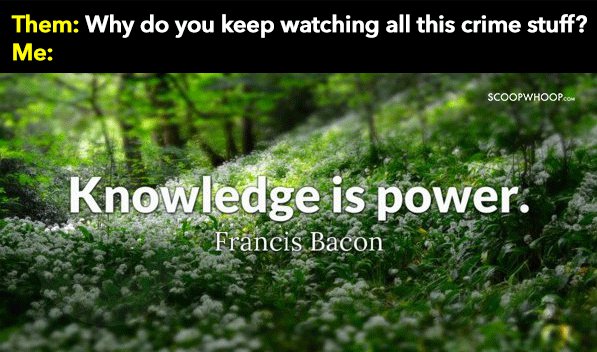
Revenge, money, and love – look for those motives before anything else. See? Where do you think I learned that?
i am interested in true crime but because the victims and survivors stories deserved to be shared and teach lessons. NOT because i glorify violence and abuse i actually am terrified of something happening to my loved ones or myself.
— 🧚🏼ari the fairy🧚🏽♀️ (@ethniccrybaby) May 10, 2021
A good true crime show will also be a commentary on society and that is simply amazing. It makes you question things about yourself too, and a little introspection doesn’t hurt.
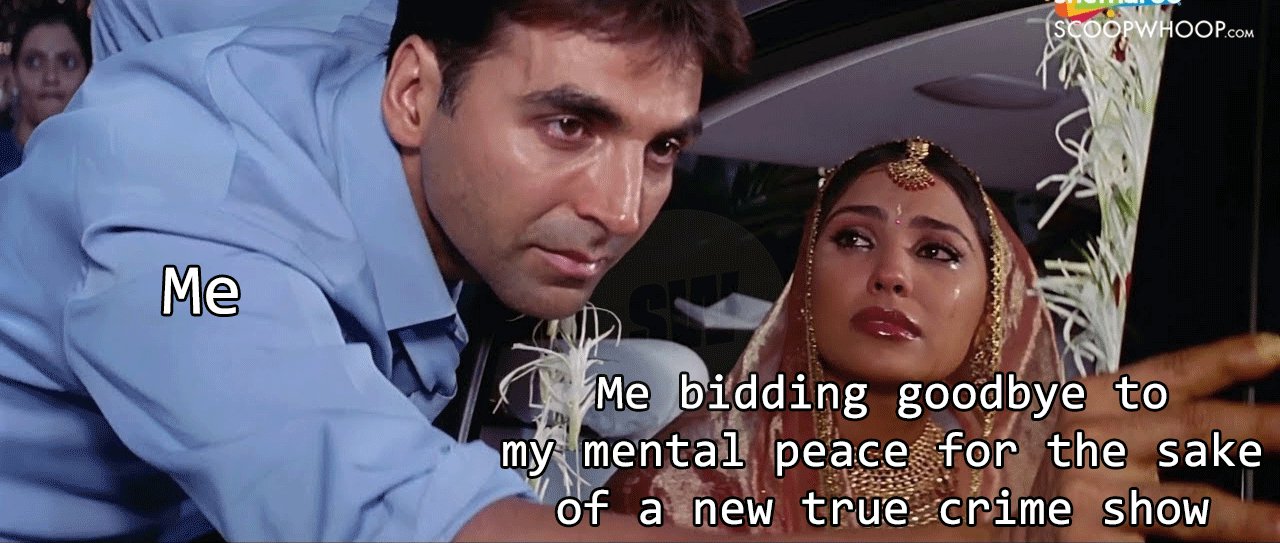
To end this, I will come back to my initial point: that while comedies and romantic-comedies are endless fun, true-crime is my truest companion. Here’s to understanding criminal intent. It all started with Crime Patrol.





